Whether you’re embarking on a new lifestyle on the coast or want to accomplish a new skill ahead of your next holiday, learning how to sail offers a world of adventure with friends and family. Having the knowledge to man your own boat gives you the freedom to roam the world – with the wind in your sails!
If you’ve ever wanted to learn how to sail, we’ve got you covered with just about everything you need to know. Keep reading for answers to all of the essential questions, including where to start, how difficult it is and how much sailing tutelage could cost you.
Want to Learn How to Sail? Here’s Everything You Need to Know.
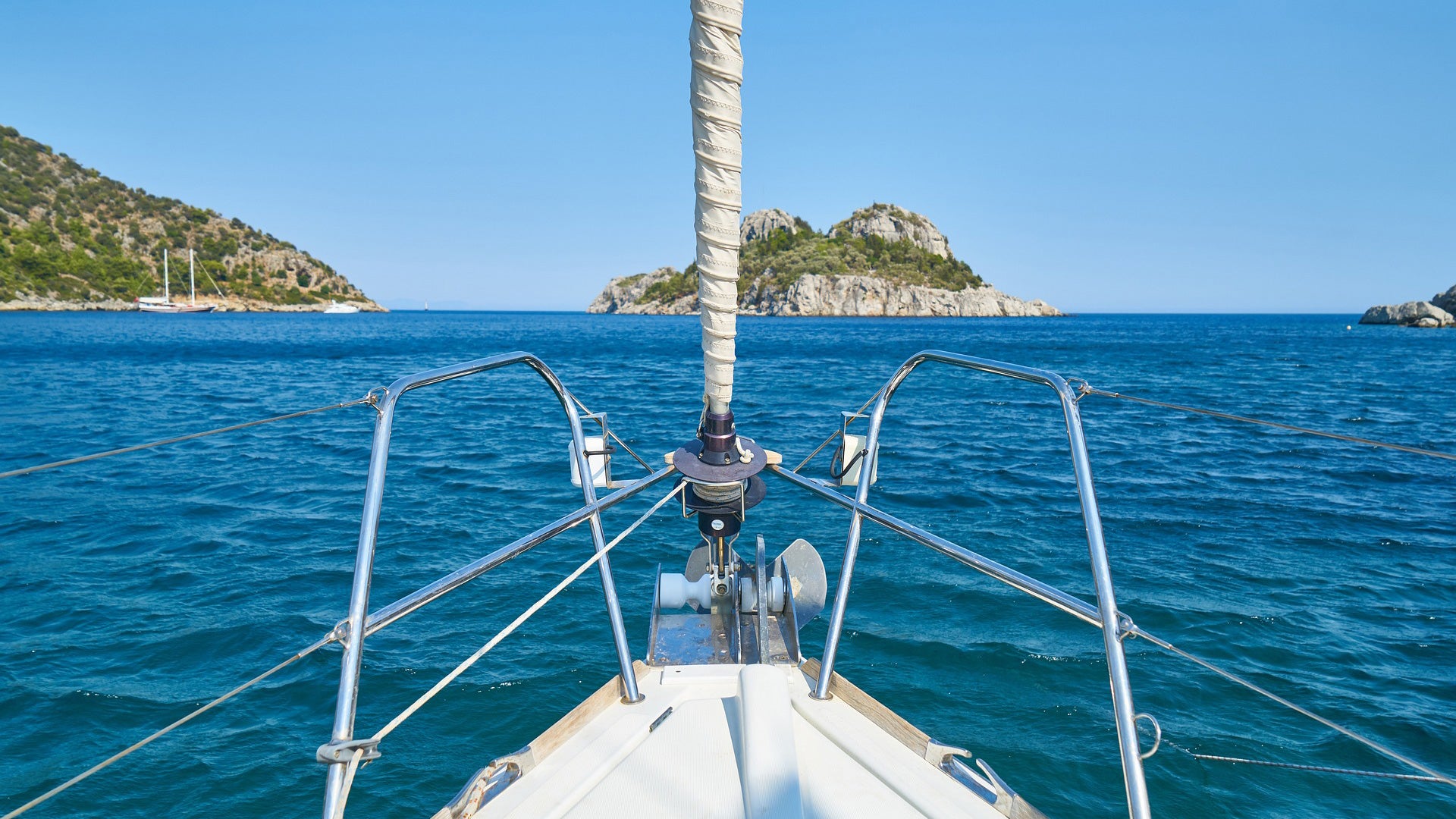
Can I Try Sailing Before Learning How to Sail Myself?
Yes! Learning how to sail can be a big decision, especially if you’re planning on enrolling on a course to hone your skills or studying for certifications. There are two main ways to try out sailing before you learn how to sail:
1. Visit a Local Club for Small Boat Sailing
If you want to start small, visiting your local sailing club can be a great way to try out this adventure-fuelled hobby. Most organisations offer taster sessions or discovery days, allowing you to dip your toes into the water before signing up for any serious classes.
2. Charter a Skippered Sailboat on Your Next Holiday
If you’re keen to push the boat out and experience sailing like never before, why not consider chartering a skippered sailing boat on your next holiday? You’ll get the chance to watch an expert in action and get a taste for what sailing your own boat could look like.
Learn more about chartering a yacht for your holiday with Dream Yacht Charter.
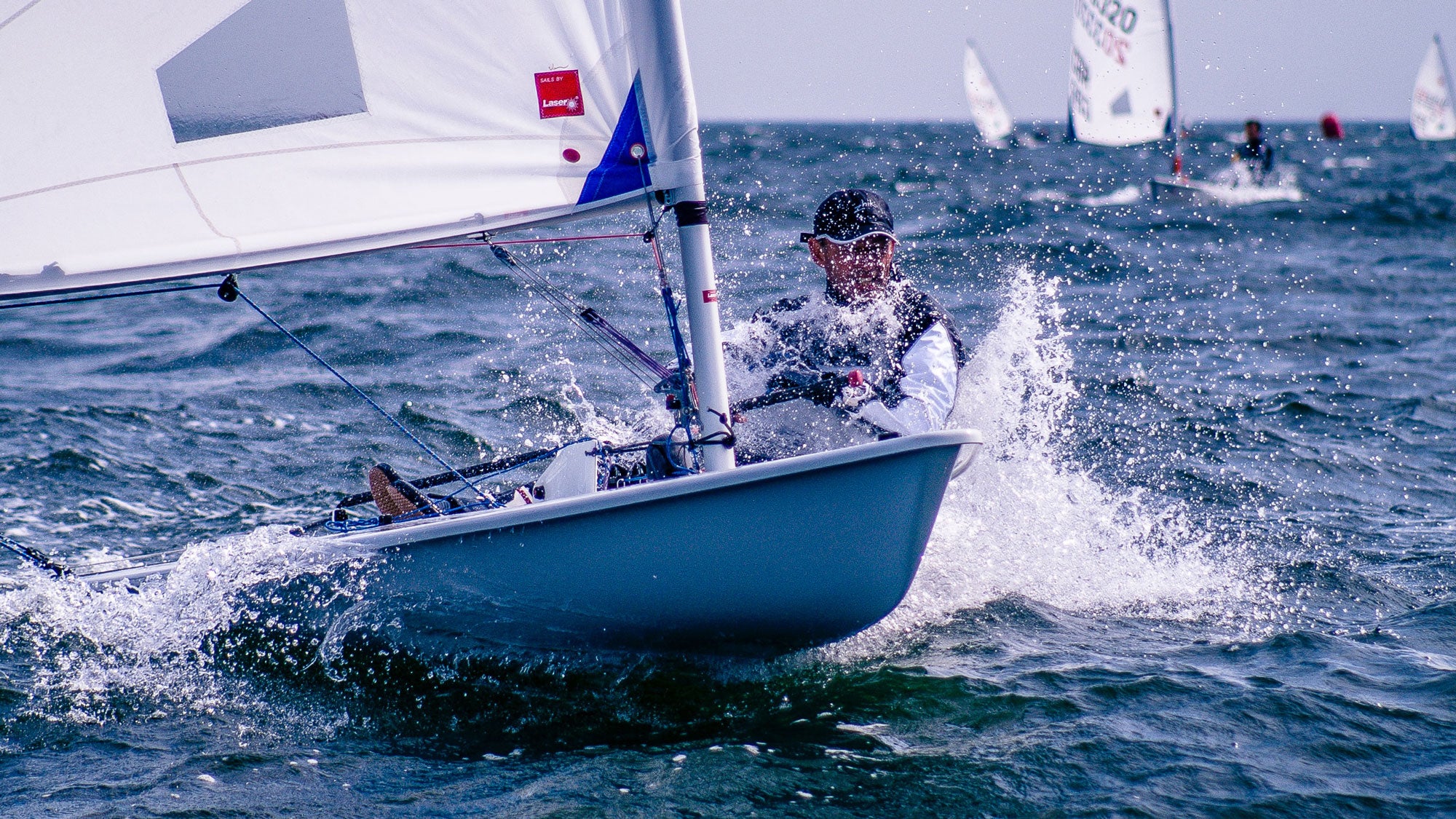
While controlling a masted vessel can look like an impossible task to outsiders, sailing is actually a straightforward skill to master. In fact, a skilled instructor can cover most of the basics in an afternoon and have you sailing solo on a small boat in just a few days of lessons.
If you want to learn how to sail a large catamaran or monohull sailing yacht, it’s worth reaching out to your local sailing school to see what kind of training is on offer. You could even sign up for a specialised course to learn how to sail a large boat while on your next holiday in a dreamy destination!
Why Should I Learn How to Sail If I Don’t Own a Sailing Boat?
Believe it or not, you don’t have to own your own boat in order to sail one. Instead of buying, docking and maintaining your own vessel, you can hire one locally or charter one for a relaxing holiday at sea. Simply enjoy your trip, visit the places you want to see and hand back the boat once you’re done exploring the world.
Once you’re equipped with the skills you need to set sail, a bareboat yacht charter is the ideal option. Explore azure lagoons, island-hop archipelagos, experience bucket list sailing grounds and create memories with family and friends on a bareboat sailing holiday that will last a lifetime.
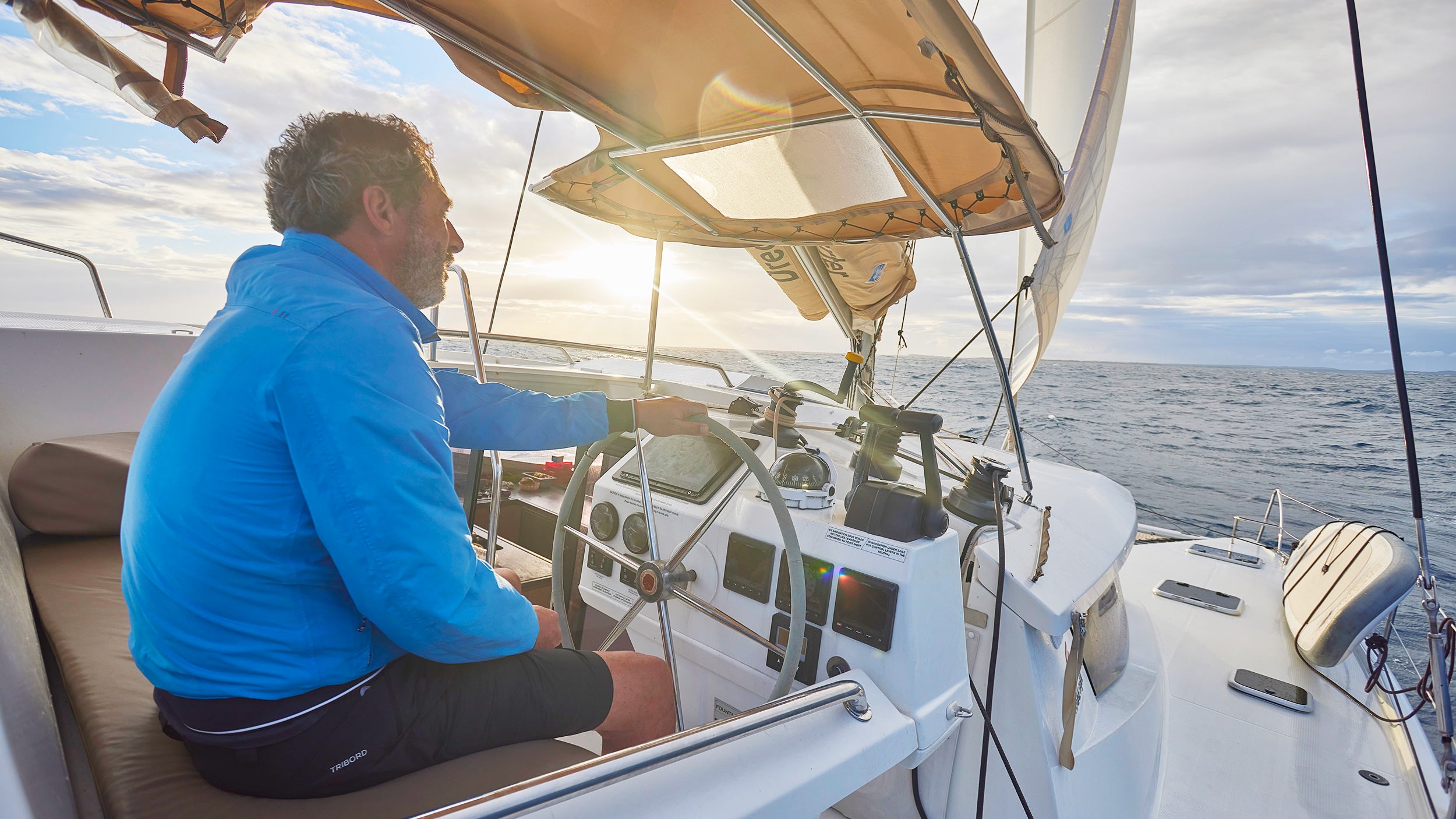
At Dream Yacht Charter, we have 40+ destinations to choose from, including:
❖ Americas – Mexico + USA
❖ Caribbean – Antigua, Belize, British Virgin Islands + more
❖ Bahamas – Abaco + Exumas
❖ Mediterranean – Croatia, Greece, Italy + more
See our full list of destinations here.
How Much Does It Cost to Learn How to Sail?
The amount you spend on your sailing education depends on how much it’s worth to you. If you’re planning on changing your lifestyle and making sailing a regular habit, investing more might be a wise move. If you’re just starting out and want to upskill for your first at-sea holiday, a couple of lessons should have you covered.
While every school will have their own specific price list, here are some general figures:
❖ 1-2 hour lesson – under £100
❖ Weekend / short courses – approx. £500
❖ Holiday sailing package (including tuition, certification, accommodation, resort fees and tax) – approx. £2500-3000
Our partner, Nautilus Sailing, offers liveaboard sailing holiday packages in several amazing destinations. Visit nautilussailing.com to find more details on costs, sailing dates and destinations. Or visit our blog to find more details on how much it costs to charter a yacht instead.
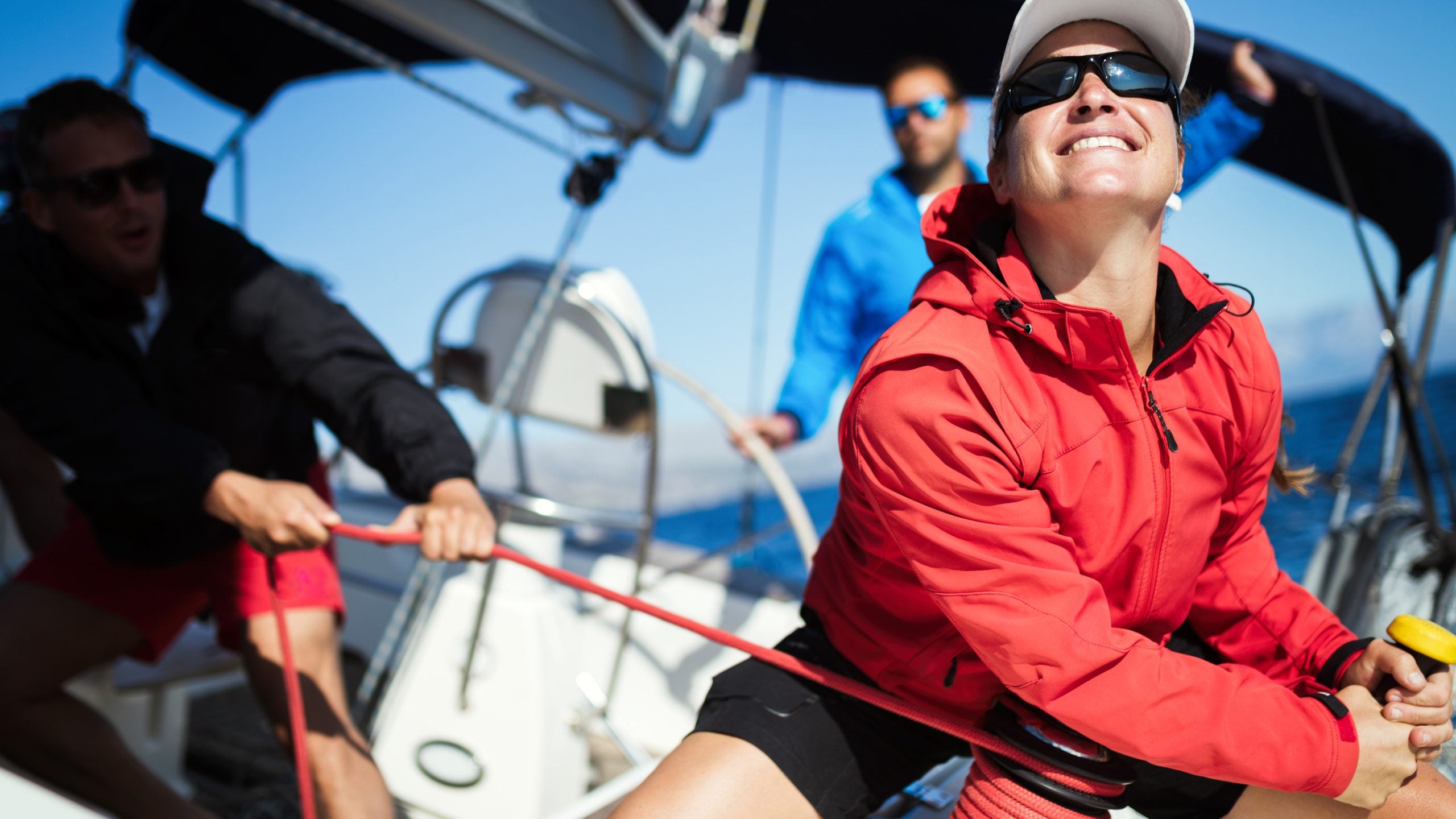
What’s the Best Time of Year to Learn How to Sail?
One of the biggest things to consider when debating how to learn to sail is the time of year. The oceans change dramatically depending on the seasons, so you’ll want to take weather and waves into account.
If you’re living in a cooler climate (like upper North America or the UK), spring or fall are probably the best times to learn how to sail due to optimal wind speeds. If you’re considering learning on holiday or in a warmer location, many places offer year-round training.
The best plan of action is to decide where you’ll learn, then choose the best time based on your specific location.
Where’s the Best Place to Learn How to Sail?
The best thing about sailing is that you can do it anywhere there’s a boat, a breeze and an ocean. With that being said, some destinations are more popular than others due to their wind and weather conditions, plus the range of marinas available to you.
One of the best places to learn how to sail is the British Virgin Islands. Offering some breathtakingly beautiful cruising grounds, BVI is also super safe for amateur sailors. With few navigational hazards and great breezes for sailing, it’s a great spot for everyone. For those in Europe, Croatia is also an excellent choice.
If you want to know how to learn how to sail elsewhere, areas with large bodies of water for hassle-free sailing training include the Bahamas, Caribbean, French Polynesia and parts of the Mediterranean.
Some Things to Consider When Planning Your Educational Sailing Trip:
❖ Decide on the best destination for you – whether you’re based in the US, the UK or further afield, choosing the right destination for your sailing education is key. If you’re investing in a sailing school holiday or chartering a skippered yacht, make sure to consider what you want to experience while you’re away at sea.
❖ Choose the right boat – whether you’re learning how to sail a catamaran or a traditional sailing yacht, size really matters when it comes to sailing. It can help to begin on smaller vessels that allow more sailing sensations at the helm. Skills learned on a small boat are easily transferable to larger sailboats, while those who learn on larger boats often find dinghy sailing very challenging.
Should I Get a Certification? What Certifications are There?
Getting certified is a brilliant way to increase your comfort level and alleviate stress, especially if you’re worried about safety. Certification is not required to charter with Dream Yacht, so if you’re confident you have the skills you need, you can submit your resume to get approved to charter. However, keep in mind that some countries, especially in the Mediterranean, require specific licenses to charter.
How Fast Can I Become Qualified to Charter a Big Sailboat Myself?
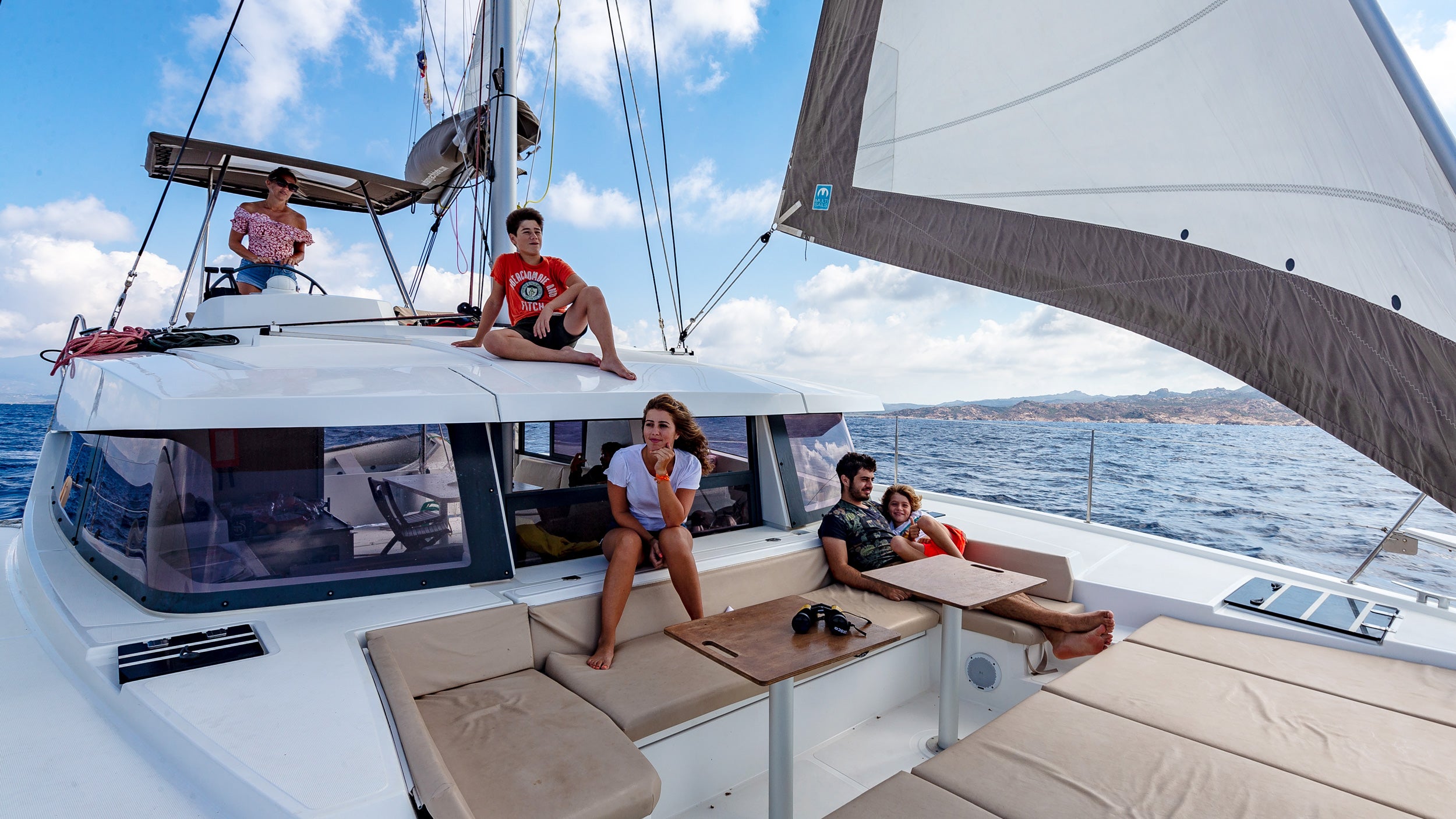
Some sailing schools offer you the chance to get all the certifications you need in one complete course, so the faster you enrol, the quicker you can get sailing! In the United States, a basic sailing course will usually result in a Keelboat Certification, teaching you to be comfortable sailing smaller keel boats and day sailors. Once you step up to larger 40’ to 50’ boats, you can gain your ASA or US Sailing Basic Cruising and Bareboat Cruising certifications. The whole learning experience is worth the investment in itself, even if you don’t necessarily need certifications to get sailing.
Other licenses commonly recognised in Europe include RYA and ISPA. Those serious sailors looking to charter around the world might consider obtaining an ICC or SLC, internationally recognized sailing license.
If you want to know how to learn to sail without the pressure of a condensed course, there are other options. Heading out on a skippered charter or chartering a yacht with experienced friends can be a great way to learn at your own pace instead.
Charter a Sailboat With Dream Yacht Charter
Whether you want to learn to sail a catamaran or sailing yacht, a holiday of a lifetime with Dream Yacht Charter is one of the best ways to get started. Explore our skippered charters and bareboat experiences on our website, or get in touch with the team to plan your next trip!




